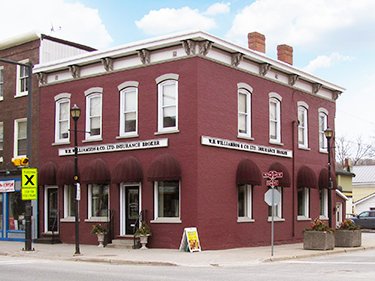Barbecue Season Is In Full Swing: Don’t Go Up In Flames
The joys of outdoor cooking also bring fire and associated risks. Here are some safety reminders for gas and propane barbecues to protect you and your property from harm or damage.
• Never operate a barbecue in an enclosed space, close to a structure, or near combustibles. Have a one metre radius around it free of obstructions.
• Keep your barbecue in tip top shape. Check for hose breakage, valve leaks, and other parts before securing the tank well and turning on the gas.
• When in use, never leave the grill unattended, and when finished turn the tank off before the burners so the remaining gas in the lines can burn off. This can help prevent a flash the next time the BBQ is in use.
• Make sure your fire extinguisher is easily accessible and in good working order.
Additional Tips
• Propane companies use an additive to create an unpleasant odour like rotten eggs to make a propane leak easier to detect, so you can shut off supply immediately, stop using the grill, and clear the area.
• Although the risk of carbon monoxide is low when using a BBQ outdoors, it is not entirely eliminated. Learn to recognize the signs of CO2 poisoning and take appropriate action.
• Store propane tanks in an upright position, in a spot where they are unlikely to be knocked or bumped to prevent any safety risk.
Off to College or University? Keep Yourself Covered
Laptop. Cellphone. iPod. Insurance. The first three items without the fourth can create an expensive problem. Insurance will respond should theft of these and other personal items occur. Many students are covered by an extension of their parents’ homeowner’s policy. Some insurers cap the coverage at $5000, others do not. If a claim is made on behalf of the child, then it counts against the parents’ policy. If the student is living off campus, and especially if sharing accommodations, a separate tenant package policy may be required. The insurer should be told about any sharing arrangement in advance to avoid complications if a claim is put through. This type of policy also covers students against liability for damage to the home or residence where they are staying (fire, for example), and against injury claims from visitors.
On the auto insurance side, if the student is not taking a vehicle to school, coverage is usually available on the parent’s policy as a part time driver. If the student does have a vehicle at school, or has moved out permanently, changes will have to be made to the parents’ policy. A new policy is needed if the student is moving out of province, since auto insurance varies provincially. Before the student leaves for school, have the conversation with your broker to determine what is required by the circumstances.




 W.H. Williamson & Co. Limited
W.H. Williamson & Co. Limited




